20 Best Short Stories With A Moral Lessons For Kids
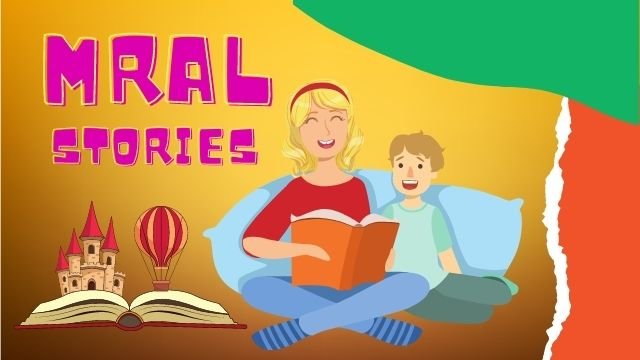
stories with a moral
When it comes to teaching kids a valuable moral lesson, most parents turn to short stories. It not only piques their interest, but it also teaches children valuable life lessons.
Short stories have a unique method of imparting knowledge that makes them more accessible and engaging. Rather than simply reminding your kid not to lie, offering them a brief tale about what happens when they do will help them grasp what happens when they do. It assists individuals in becoming more conscious of their behaviors and the implications of those actions. As youngsters get older, the moral lessons from these stories assist to build their character and moral compass.
Above are 20 short stories with moral teachings from which your kids (and even some adults) can learn:
1. The Ants and the Elephant
Once upon a time, there was a haughty elephant who used to bully smaller creatures. He’d go to an anthill near his house and spray the ants with water. Because of their size, the ants could only cry. The elephant simply chuckled and threatened the ants with death by crushing them. The ants had had it and decided to teach the elephant a lesson one day. They jumped into the elephant’s trunk and began biting him. The elephant could do nothing but howl in agony. He realized his error and apologized to the ants as well as all the other animals he had harassed.
The moral to this story:
Maintain a humble demeanor and treat everyone with respect. If you believe you are stronger than others, instead of injuring them, use your strength to protect them.
2. The Poor Slave and the Lion
Once upon a time, there was a slave who was mistreated by his master. He couldn’t stand it any longer and fled to the forest to seek refuge. He came upon a lion who was unable to move due to a thorn in its paw. Despite his fear, the slave summoned his bravery and extracted the thorn from the lion’s paw. When the lion was finally free of the thorn, he dashed into the jungle, oblivious to the slave’s presence. The slave was eventually apprehended in the jungle by his master, along with some animals. The slave was then thrown into the lion’s den by the master. The slave recognized the lion as the one he had aided in the wilderness. The slave was able to flee the den without being hurt, and he was able to free all of the other animals.
The moral to this story:
Your good deeds will always find a way to come back to you. So do good things and treat others with kindness, and the world will return the favor.
3. The Ugly Duckling
This is one of the most well-known fairy stories in the world, and most of us have heard of it. The plot centres around a duckling who has always felt different from his brothers since birth. He was constantly teased since he didn’t look like the other kids. He had had enough and rushed away from the pond where he had grown up. He traveled far and wide in search of a family who would embrace him. Months passed, seasons changed, but no one wanted him because he was such an unattractive duck. Then he came across a family of swans one day. When he looked at them, he realized he had transformed into a lovely swan during the months he had spent hunting for a family to call his own. He suddenly realized why he never looked like the rest of his siblings: he is a swan, not a duck.
The moral to this story:
We should not pass judgment on others just based on their outward appearance. Just because someone doesn’t suit societal beauty standards doesn’t mean they’re unattractive. Each of us is lovely in our way, and it’s past time we accepted and celebrated our differences.
4. The Boy Who Cried Wolf
Once upon a time, there was a shepherd boy who enjoyed playing tricks. While keeping an eye on the herd, the boy decided to play a joke and screamed out, “wolf! wolf!” People who had heard him hurried over to assist him. They were upset, however, when they discovered that there was no wolf and that the boy was mocking them. He did it again the next day, and many came to his rescue, only to be let down once more. The child observed a wolf devouring one of his lambs on the third day and cried out for rescue. However, many who heard him assumed it was simply another of the boy’s pranks, and no one came to his aid. The wolf took some of the boy’s livestock that day.
The moral to this story:
If you lie and cheat on other people all of the time, no one will believe you at some point.
5. The Grasshopper and the Ant
The grasshopper and the ant were best friends. During the summer, the ant works tirelessly to stock his food storage. The grasshopper, on the other hand, was taking advantage of the pleasant weather by playing all day. When winter arrived, the ant was snug in his home, surrounded by the food he had stored over the summer. While the grasshopper was hungry and cold in his home. He requested food from the ant, and the ant obliged. However, it was insufficient to see us through the winter. When he tried to ask the ant again, he was told, “I’m sorry, my friend, but my food is only enough for my family to live till the end of the winter.”
If I give you any more, we’ll all go hungry. We had the entire summer to prepare for the next winter, but you decided to play.”
The moral to this story:
In this story, winter depicts a period in our lives when food and resources are in short supply. Summer, on the other hand, is the season of abundance. So, if you have a lot today, set aside some for the winter.
6. The Grapes and the Fox
Once upon a time, a hungry fox came across a vineyard. The fox drooled as he saw the round, luscious grapes hanging in a group. But no matter how high he leaped, he was unable to reach it. So he rationalized that it was probably sour and walked away. He had to sleep on an empty stomach that night.
The moral to this story:
The majority of us have a proclivity to act like a fox. We makeup reasons when we want something but believe it will be too difficult to obtain. Instead of working hard for it, we persuade ourselves that it’s probably not that great.
7. Lazy John
John, a boy who was so sluggish that he didn’t bother to change his clothes, was one of them. He saw the apple tree in their yard was laden with fruit one day. He wanted to eat some apples but was too sluggish to climb the tree to get them. As a result, he sat down beneath the tree and waited for the fruits to fall. John waited and waited until he was ravenous, but no fruit dropped.
The moral to this story:
You can’t get anywhere by being lazy. If you desire something, you must put forth a lot of effort.
8. The Thirsty Crow
A thirsty crow wandered the woodland in quest of water after flying a long distance. Finally, he came across a half-filled water pot. He tried to drink from it, but his beak was too short to reach the interior water. He then saw pebbles on the ground and placed them in the pot one by one till the water level reached the brim. The crow quickly drank from it, satiating his thirst.
The moral to this story:
There is a way if there is a will. If we look hard enough and don’t give up, we can find a solution to any difficulty.
9. The Dog and the Bone
Once upon a time, there was a dog who roamed the streets at all hours of the day and night in quest of food. He came across a large juicy bone one day and instantly snatched it between his teeth and carried it home. He crossed a river on his way home and observed another dog with a bone in its mouth. He was also after that bone for himself. However, the bone he was biting fell into the river and sank as he opened his jaws. He went home famished that night.
The moral to this story:
If we continuously envy what others have, we, like the greedy dog, will lose what we already have.
10. The Tortoise and the Hare
Once upon a time, there was a hare who was friends with a tortoise. He challenged the tortoise to a race one day. The hare assumed that because the tortoise was moving so slowly, he would easily win. As a result, he took a nap as the tortoise continued on his way. When the hare awoke, the tortoise had already crossed the finish line. The tortoise, much to his dismay, won the race while he was napping.
The moral to this story:
This narrative can teach us a few moral lessons. Overconfidence, according to the hare, can lead to disaster. The tortoise, on the other hand, teaches us the value of tenacity. Never quit up, even if everything seems to be against you. It’s not always about who’s the quickest or strongest in life; it’s sometimes about who’s the most reliable.
SHORT MORAL STORIES FOR KIDS
Stories are an excellent technique to teach kids the difference between good and wrong. They also assist students in gaining a general awareness of human ethics and behavioral tendencies. We grew up reading and listening to Panchatantra stories, Tinkle, Amar Chitra Katha, and Jataka tales as youngsters, and we may not realize it, but those short moral stories for kids have played an important role in shaping who we are today.
These educational stories for kids instill values, ideas, and principles that form the bedrock of our characters. That is why it is critical to passing down these morally instructive short stories to help kids grow into well-rounded adults.
We’ve compiled a compilation of short moral stories for kids that are still relevant today. Plus, we’ve hand-picked a few modern stories from kidsstory.org that have symbolic, underlining meanings.
11. The Midas Touch
King Midas is the subject of this English kid’s fable. Midas, a tremendously wealthy king, lived in Ancient Greece. He had all he could have wished for and more, as well as a lovely daughter whom he cherished even more than his wealth.
Silenus, a satyr loyal to Dionysus, the God of Wine and Celebration, passed out in Midas’ garden one day. Midas went despite his family’s desires and let Silenus snooze in his palace until he awoke again, believing that satyrs brought him good luck.
When Dionysus learned of Midas’ generosity to his friend, he decided to grant the wealthy king a request. Midas wished that everything he came into contact with would turn to gold. Even though Dionysus was well aware that this was a formula for disaster, he still granted the desire. Midas was overjoyed, and he went around touching everything in the garden and palace to turn everything into gold. He transformed an apple into a gleaming gold apple when he picked it up. The courtiers were all enthralled.
Midas had never been happy in his life… He caressed his daughter, completely forgetting that anything he touched would turn to gold! As a result, his daughter became a dead gold statue. Midas hurried to Dionysus and asked God to save his daughter after realizing what he had done. Dionysus spared his daughter and took away all of Midas’ powers to fulfill his wish, claiming that it was for the best. Midas had learned his lesson and was content with what he had for the rest of his life.
Moral of the story: Don’t be greedy; be happy with what you have.
12. The Musical Donkey
Udhata, a skinny donkey who had been famished by his owner, a local fisherman, set off in quest of food with his jackal companion. In the middle of the night, the two went about the village until they came across a cucumber field. They enjoyed their supper so much that night that they resolved to visit the cucumber field every night. Udhata gradually improved her appearance and was able to carry greater weight.
The donkey insisted on singing after a delicious and nutritious dinner of cucumbers. Although the jackal warned him that this was a bad idea, the stubborn donkey refused to listen to his pal. Even when the jackal told the donkey that his voice wasn’t very lovely, Udhata rejected the jackal’s remark, supposing the jackal was jealous. He informed the jackal that he was pleased with himself, and there’s nothing wrong with that. The jackal admonished him once more about his foolish behavior and how he was causing trouble for himself by distracting the guards. The foolish donkey, on the other hand, would not budge.
The jackal halted the donkey’s singing and told him to wait till the jackal jumped over the other side of the fence for his protection. Outside, the jackal chose to wait. The guard naturally awoke from his nap when he heard the donkey’s loud braying noise. When the guard saw Udhata, he smacked him in the face hard. He didn’t hold back and directed all of his rages onto the donkey, who was sincerely remorseful for not following his friend’s advice. The donkey was scarcely able to move after he finished. Despite this, he managed to drag his limp body out of the field, where the jackal had been waiting. “I told you so,” his friend remarked with a compassionate expression on his face.
Moral of the story: Think before you act.
13. The Clever Monkey
Once upon a time, there was a wise monkey who lived on a tree that produced fresh, delectable fruit. A day came when a crocodile swam up to the tree and informed the monkey that he had traveled a great distance and was completely fatigued. The crocodile had been on the lookout for food and was ravenous. When the crocodile heard this, the friendly monkey brought him a couple of berries, which the crocodile gratefully accepted. He asked the monkey whether he may come back for some fruit soon. The monkey nodded enthusiastically.
The crocodile reappeared the next day, then the next, and so on. This became a daily practice for them, and they became excellent friends as a result. They talked about what was going on in their lives and confided in one other as all friends do. The crocodile informed the monkey about his wife, who resided on the opposite bank of the river. As a result, the crocodile was given some extra berries by the generous monkey to take home for his wife.
They ate berries together while the crocodile and the monkey grew closer as friends. The crocodiles would frequently receive additional berries from the monkey, which he would take home for his wife. The crocodile’s wife became envious of the two buddies because of their tight friendship. She was determined to end their friendship. She reasoned that if the monkey could survive on a diet of delectable fruit, his flesh must be exceptionally sweet. As a result, she requested that the crocodile invite his friend to supper. The crocodile declined because he suspected his wife was planning something nefarious. She was, nonetheless, adamant upon eating the monkey’s flesh.
She feigned to be sick and told the crocodile that her doctor said the only thing that could save her was a monkey’s heart. Hearing this, the crocodile dashed to the monkey’s branch and pretended to be his wife, telling him that she had cooked a delicious dinner for them. The monkey nodded enthusiastically and climbed onto the crocodile’s back. The monkey observed the crocodile sinking around halfway through. Fearful, the monkey inquired as to why his comrade was acting so strangely. The crocodile was straightforward in his explanation of the problem.
He was in an unpleasant situation, the wise monkey explained, because he had left his heart at home. He would gladly give his heart away to nurture the crocodile’s wife back to health if the crocodile took him back. The crocodile was fooled by the monkey’s brilliant deception and dashed back to the tree to steal the monkey’s heart. The monkey dashed up to safety as soon as they arrived, telling the crocodile to tell his wife that she had married an idiot!
Moral of the story: Stay calm and use your presence of mind to pull yourself out of a bad position.
14. The Lion Who Resurrected
This is the story of four intelligent and well-informed buddies. Subuddhi, the fourth, wasn’t very highly educated or insightful, but he did have one attribute that his scholarly peers lacked: common sense.
Three of the buddies decided to look for work in other cities and villages when the time came. They desired monetary compensation in exchange for their expertise. After all, it was pointless to be so knowledgeable about the scriptures and sciences if they weren’t going to benefit from it. The three friends did not want to bring Subuddhi because of his lack of intelligence, but they decided to invite him nonetheless because he was an old childhood friend.
The four companions embarked on a long journey, traveling from one town to the next in search of work. They came across a collection of bones under a tree while going through a deep jungle. They believed that this was an excellent opportunity to demonstrate their abilities.
The first friend put the bones together into a skeleton with his abilities. When the skeleton was finished, the second companion repeated a mantra, which caused flesh and meat to grow on it. It had the appearance of a dead lion. The fourth buddy intervened just as the third friend was ready to put an end to the performance by resurrecting the lion. Subuddhi knew the fearsome lion would not spare them once it was brought back to life.
The third friend, on the other hand, disregarded his counsel, mocked him, and pushed forward with something that was clearly a horrible idea. Subuddhi immediately climbed a nearby tree to protect himself as the third companion began to chant, resurrecting the lion. The lion killed all three of the knowledgeable friends, as predicted by the fourth friend, while Subuddhi rushed back to the hamlet alive.
Summary
That’s all there is to it, guys! We hope you enjoyed these motivational stories and that you will share them with your children. If you’re looking for additional short moral stories for kids, the kidsstory.org is a great place to start. We have books with interesting stories that are excellent for developing character and personality. In the comments, tell us about your favorite moral stories from childhood, and don’t forget to share them with your kids!
Moral of the story: Never give up.
Short Moral Stories That Teach Important Lessons
Morals and messages embedded in stories are always compelling. It’s incredible how effective a 200-word story can be.
Our first list of short stories was so popular that we decided to make another one, this time with each story having a simple moral.
Short Moral Stories
Some of these tales are brief and straightforward. Some are so simple that they’re almost certainly found in children’s books. The message’s power, however, remains unchanged.
Here are some more of the best moral stories in short form:
15. An Old Man Lived within the Village
In the village, there was an old man. He was one among the world’s most unfortunate individuals. The entire community was sick of him; he was always pessimistic, always complaining, and always in a foul attitude.
The longer he lived, the more bile he produced, and the worse his words became. People steered clear of him because his misery had spread. Being happy next to him was even unnatural and offensive.
Others were made unhappy by him.
But then, when he was eighty years old, something extraordinary happened. Almost immediately, everyone heard the rumor:
“An Old Man is cheerful today; he doesn’t complain about anything, grins, and even has a new look.”
The entire village had gathered. When the old guy was questioned, he was asked:
Villager: Can you tell me what happened to you?
“There’s nothing unique about it. I’ve been chasing happiness for eighty years, and it’s been fruitless. Then I decided to live without happiness and simply appreciate life. That is why I am now content.” – An Old Man
The moral of the story is to not seek happiness. Have fun with your life.
16. The Wise Man
People had been going to the wise man for years, talking about the same issues. He told them a joke one day, and they all burst out laughing.
He told them the same joke after a few minutes, and only a handful of them grinned.
No one laughed when he delivered the same joke for the third time.
With a smile, the wise man said:
“You can’t laugh at the same joke over and over.” So, what makes you cry over and over again about the same thing?
The moral of the story:
Worrying is a waste of time and energy that will not fix your difficulties.
17. The Foolish Donkey
Every day, a salt salesman would ride his donkey to the market with his salt sack.
Along the way, they had to cross a brook. The salt bag and the donkey both went into the water as the donkey tumbled down the creek one day. Because the salt dissolved in the water, the bag became extremely light to carry. The donkey was overjoyed.
The donkey then began to repeat the same trick every day.
When the salt vendor realized the ploy, he resolved to give it a lesson. The next day, he loaded a cotton sack onto the donkey.
It tried the same method once more in the hopes of making the cotton bag lighter.
However, the wet cotton became extremely heavy to carry, and the donkey suffered as a result. It had learned a valuable lesson. After that day, it no longer worked, and the vendor was pleased.
The moral of the story is that luck does not always favor you.
18. Having A Best Friend
Two buddies were walking through the desert, according to legend. During the journey, they got into a disagreement, and one of them slapped the other in the face.
The person who was smacked was upset, but instead of saying anything, he scribbled in the sand.
“My best friend hit me across the face today.”
They continued going till they came to an oasis and decided to take a bath. The person who had been slapped became caught in the muck and began drowning, but was rescued by a friend. He wrote on a stone once he recovered from his near-drowning.
“My best friend saved my life today.”
He was asked by the friend who had slapped and saved his closest friend:
“You wrote in the sand when I harmed you, and now you write on a stone, why?”
The other person responded,
“When someone wrongs us, we should scribble it in sand and let the winds of forgiveness sweep it away. When someone does anything nice for us, however, we must inscribe it in stone so that no wind can ever wipe it away.”
The moral of the story:
Don’t appreciate what you have in your life. However, appreciate those you have in your life.
19. The Fox & The Grapes
A fox was wandering through the woods one day when he noticed a bunch of grapes hanging from a high limb.
“Just the thing to quench my thirst,” he thought to himself.
The fox took a few paces back and leaped, just missing the dangling grapes. The fox stepped back a few yards and attempted to reach them again, but was unsuccessful.
Finally, the fox gave trying and turned up his nose, saying, “They’re probably sour anyway,” before walking away.
The moral of the story:
It’s all too simple to resent something you can’t have.
20. The Poor Slave and the Lion
A slave flees to the wilderness after being mistreated by his owner. He stumbles upon a lion who is in excruciating pain due to a thorn in his paw. The slave bravely advances and delicately removes the thorn.
Without injuring him, the lion flees.
A few days later, the slave’s master goes hunting in the forest and captures a large number of animals, which he then cages. The master’s men spot the slave and capture him, bringing him to the nasty owner.
The slave is ordered to be thrown into the lion’s cage by the master.
The slave is in the cage awaiting his death when he realizes it is the same lion he had aided. The lion and the other captive animals were rescued by the slave.
The moral of the story:
Helping those in need is a good thing to do since we reap the benefits of our good deeds.
Parents are constantly on the search for good moral stories for their children. However, at KathaKids, we think that even if the morals of stories aren’t explicitly stated, children learn them. The takeaway, or moral of the story, is apparent when a story is well-written. Lessons like these are assimilated far more readily than those that are spelled out.
We also don’t believe that children should be spoon-fed morals. Rather, we believe that stories stimulate children’s imaginations. This may prompt discussions with their parents and peers about the story and what they learned from it. (When we encouraged kids to come up with their morals for the stories they read, they were extremely enthralled!) And this is a genuine learning process.
Having said that, we recognize that parents may require assistance in finding moral stories for their children, possibly to tie to an incident that has occurred in their daily lives.
If you’re seeking moral stories for children, Kidsstory.org has a selection of them.
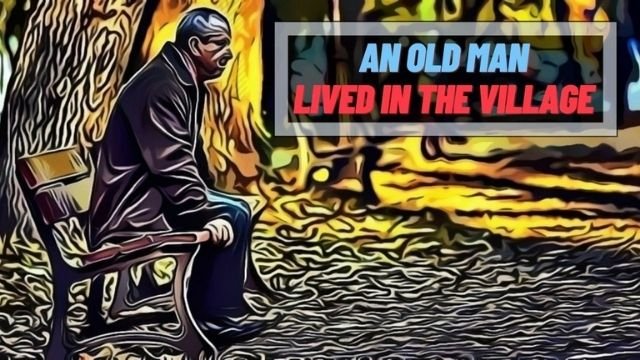



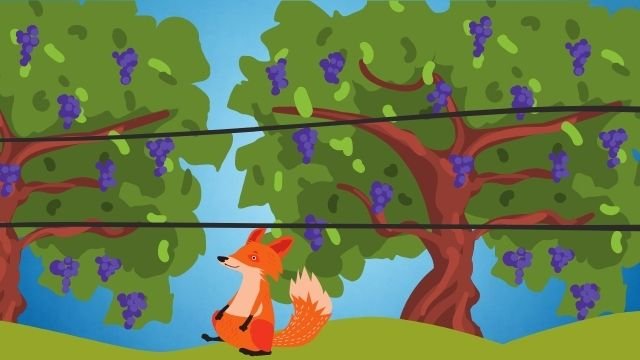

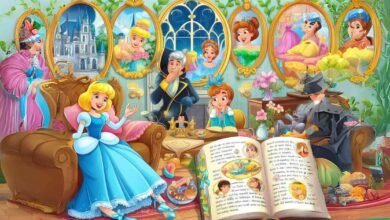

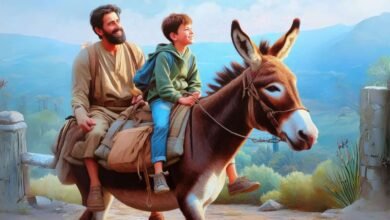

thank you